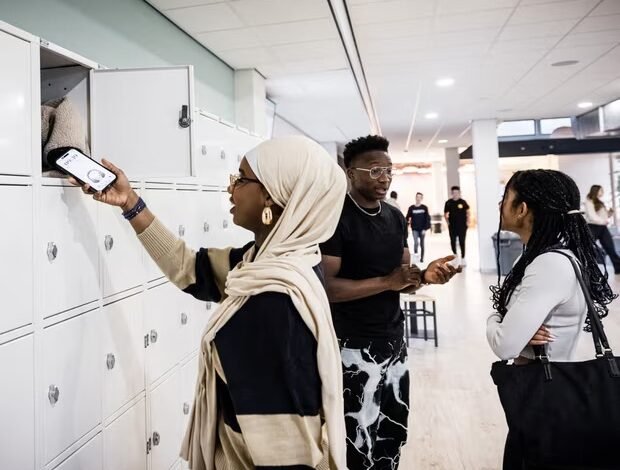Dutch School Smartphone Bans Boost Focus and Learning, Study Shows

A recent government-commissioned study in the Netherlands has found that banning smartphones in schools has significantly improved the learning environment, despite initial protests from students, parents, and some teachers.
Since January 2024, almost all Dutch schools have implemented national guidelines recommending the removal of smartphones from classrooms. Around two-thirds of secondary schools now require students to either leave their phones at home or store them in lockers. About one in five schools collects phones at the beginning of each lesson.
The study, which included surveys from 317 secondary school leaders, 313 primary schools, and focus groups involving teachers, teaching assistants, students, and parents, revealed several positive outcomes.
In secondary schools, 75% reported that students found it easier to concentrate, 59% said the social environment had improved, and 28% noted improvements in academic performance.
According to Dr. Alexander Krepel of the Kohnstamm Instituut, one of the most notable changes was in student interaction. Without the distraction of phones, students are more likely to talk to one another during breaks, contributing to a stronger sense of social safety.
“It’s not possible to secretly take a picture of someone in the classroom and then spread it in a WhatsApp group,” he said. “Now they’re forced to talk. Maybe they also get into a fight a bit more often, but overall, the atmosphere is better and people are happier.”
Freya Sixma, spokesperson for the VO-raad secondary education council, acknowledged that the policy faced considerable resistance at first, with many questioning how it would work in practice. However, she noted that these concerns have largely disappeared. “Now you see that actually everyone is pretty happy,” she said.
Special schools, where exceptions are made for students who require digital learning aids, also reported positive outcomes, with about half saying the ban had a positive or very positive impact. In primary schools, where smartphone use was already limited, a quarter still expressed positive feedback about the change.
The Minister for Primary and Secondary Education, Mariëlle Paul, emphasized that the national guideline has helped strengthen classroom discipline. She explained that individual teachers previously had to negotiate bans themselves, which was especially difficult for newer educators. With the guidelines in place, enforcement has become easier and more consistent.
Meanwhile, concern about youth screen time continues to grow in the Netherlands. Statistics Netherlands reports that 96% of children go online daily, mostly using their smartphones.
In response, the caretaker government has recently recommended that parents ban social media for children under 15 and limit screen time overall. One member of parliament has even proposed a complete ban on smartphones in all schools.
Despite the initial backlash, the study suggests that the Dutch experiment with limiting smartphones has led to a more focused, socially engaged, and disciplined school environment, an outcome that may shape future policy across Europe and beyond.





